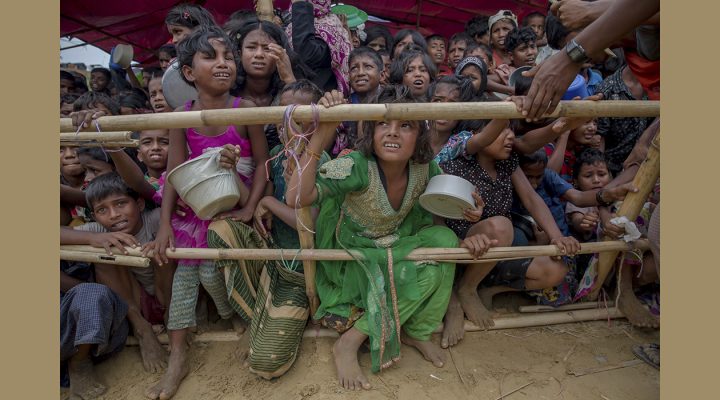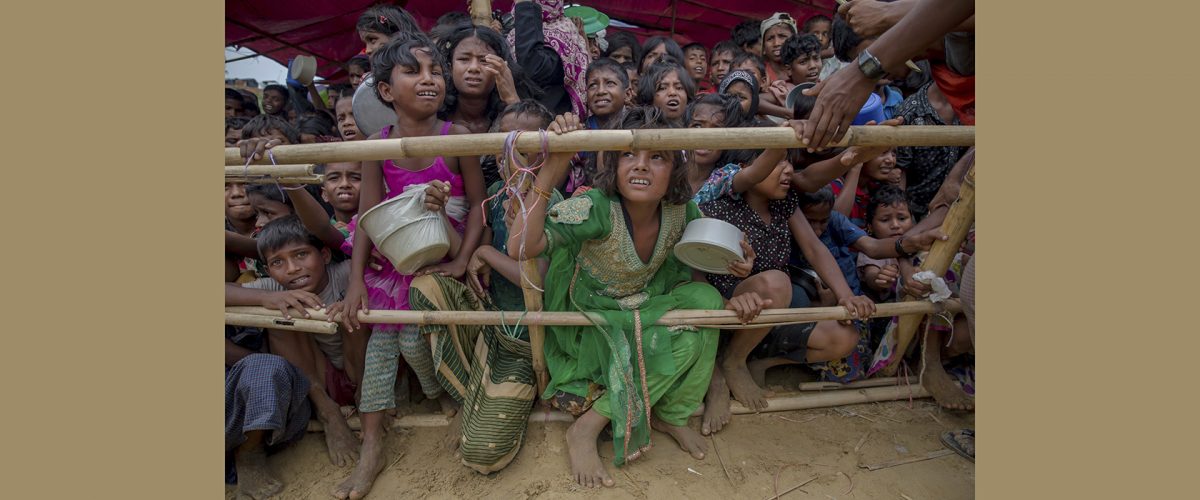Governmental and faith-based pressure is building on Congress and the international community to hold Myanmar’s military junta accountable for its persecution of religious minorities and to assist the nations hosting Baptist, Muslim and other refugees who have escaped the ongoing genocide.
The U.S. Commission on International Religious Freedom marked the recent six-year anniversary of the terror campaign with a call for expanded international assistance for countries sheltering nearly 980,000 Rohingyas Muslims who have fled the conflict. Faith-based and Burmese ethnic groups are pushing Congress to boost its support for religious freedom in Buddhist-dominated Myanmar, also known as Burma.
“We write to you as Baptist leaders in Texas with the request that in reconciliation you support the adoption of the language of the Senate appropriations bill with regard to the funding provisions for implementing the Burma Act,” 21Wilberforce President Randel Everett said in a letter to U.S. Rep. Kay Granger of Texas.
Pastors and other religious leaders across the state have been encouraged to sign the document, which urges increased funding for humanitarian relief and the promotion of faith freedom for Baptist and other religious minorities inside and outside Burma.
“The ethnic Baptist Christians have suffered tremendous devastation under this military coup as villages and towns have been attacked and burned, forcing another large diaspora to flee to neighboring countries (1.3 million) as well as to the jungle areas of Burma (1.9 million). We urge you to support them in their effort to reclaim democracy, restore their security and freedoms — including the right to freely follow one’s faith, and redress the injustices perpetrated by this unlawful regime,” the letter states.
Everett notes Burma is one of the original mission fields for Baptists from the United States and that Baptists are the largest Christian group in the country. “Baptists comprise almost 90% of the Kachin and Chin states and are also prevalent among the Karen and other ethnic groups.”
In a Sept. 15 guest column for Christianity Today, representatives of the Chin Association of Maryland announced plans to hold a hearing in U.S. Senate offices about the deteriorating conditions for Christians in Burma.
“Today, the Tatmadaw (military) specifically targets Christians from ethnic minorities such as the Chin, Kachin, Karen and Karenni. The Baptist World Alliance, World Council of Churches, Open Doors and other Christian leaders have called for action on the military junta’s persecution of Christians. It is past time for the Biden administration to ensure accountability, protect Myanmar’s persecuted Christians, and provide support for the democratic resistance,” the column says.
While the persecution began with the February 2021 military coup in Burma, Aug. 25 marked the six-year anniversary of the launch of the junta’s campaign of arsons, sexual violence and extrajudicial killings to push the Rohingya from their homes in Rakhine state. The roughly 600,000 left behind are living in apartheid conditions, USCIRF said.
“The genocide perpetrators have yet to be held accountable for these atrocities,” USCIRF Commissioner Mohamed Magid said. “The Rohingya refugees want to simply return to their homes, which they are unable to do. We appreciate the consistent generosity of the Bangladeshi government who has given refuge to around a million displaced people and urge for an increase of U.S. assistance in support of these efforts.”
“The Rohingya refugees want to simply return to their homes, which they are unable to do.”
USCIRF Chair Abraham Cooper said Burma cannot treat its citizens justly as long as the military remains in power. “We call on the U.S. government to fulfil its obligations under the Burma Act of 2022 to work with partners in the international community as well as opposition groups to ensure that a post-coup Burma includes justice, voluntary repatriation and restored citizenship for the Rohingya community.”
The U.S. State Department earlier this year announced establishment of an aid package of nearly $24 million for Burmese refugees in Bangladesh and the local communities serving them. “With this new funding, our total assistance for those affected by the Rakhine State and Rohingya crisis has reached nearly $2.1 billion since August 2017, when over 740,000 Rohingya were forced to flee to safety in Cox’s Bazar, Bangladesh,” the announcement noted.
USCIRF has urged the U.S. Secretary of State to maintain Burma’s status as a Country of Particular Concern under the 1998 International Religious Freedom Act, to cooperate with pro-democracy Burmese opposition groups and to make religious freedom and restored citizenship conditions for relations with the United States. It also urged the U.S. to expand “options for Rohingya refugees to resettle in the United States — with an emphasis on especially vulnerable members of that community — and encourage like-minded partner countries to do the same.”
Related articles:
Pay attention to what’s happening in Myanmar, Baptist pastors plead
Two years after Myanmar coup, human suffering goes unnoticed | Analysis by Erich Bridges


